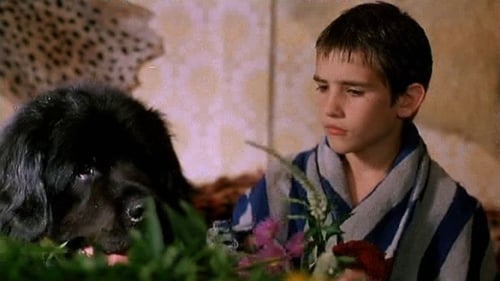
High-school senior Peter considers the adults around him to be hypocritical, self-congratulatory, and immersed in the past. He gets suspended for writing an essay that his teachers consider to be a challenge to the state. Just Don't Think I'll Cry became one of twelve films and film projects-almost an entire year's production-that were banned in 1965-1966 due to their alleged anti-socialist aspects. Although scenes and dialogs were altered and the end was reshot twice, officials condemned this title as "particularly harmful." In 1989, cinematographer Ost restored the original version, and this and most of the other banned films were finally screened in January 1990. Belatedly, they were acclaimed as masterpieces of critical realism.


Полицией найдено мертвое тело. В это же время в поезде, идущем в Западный Берлин, была арестована пожилая дама. В ее багаже была найдена оптика, запрещенная к вывозу заграницу. Оказывается, что убитый был членом банды контрабандистов. А пожилая дама регулярно перевозила оптические приборы из ГДР своему сыну Клаусу в Западный Берлин, который оборудовал там перевалочную базу для контрабандного товара… Два с виду не связанных случая служат для унтер-лейтенанта Шелленберга и лейтенанта Хассельбаха отправной точкой для начала расследования.

The electrician Peter Drews is a brigadier at a Baltic Sea dockyard. His men are among the most reliable and diligent workers at the dockyard. Their motivation, however, increasingly suffers from Peter’s narcissism and imperiousness. Even his girlfriend Brigitte who is also a member of the brigade finds it increasingly difficult to accept his behavior. One day, Peter decides that the entire group must enter the navy - just because he has received his conscription call. While four men follow Peter into the navy, Brigitte, who has broken up with Peter, takes over the control of the brigade. During the work at the ship on which Peter is based at she meets the charming lieutenant Asmus.

World War II is over and Heinrich, a young German boy, influenced by the Russians, starts to act according to Communist principles in a small German village.

The former athlete Barbara follows her husband to the province and attempts to masters her new life, even after her separation from him.

A little boy tries to keep a huge Newfoundland dog in his family's apartment.

The brothers Theo and Gustav Benthin pull profits through smuggling in divided Germany: Theo in the West and Gustav in the East. The East German police catch on quickly, however, and Gustav is arrested. The small band of smugglers disperses, with Gustav’s chauffer Peter Naumann fleeing to the West and his sister choosing the East after struggling to find work and lodging in the West.

When a motorcyclist dies in an accident, lieutenant Kreutzer and his colleague Arnold receive the order to investigate the backgrounds of this mysterious case. Although the leads point to murder, head physician Dr. Nikolai, the driver of the car involved in the accident, maintains his innocence and even has an alibi. With a lot of arduous detail work, Kreutzer follows all leads and evidence. Both Nikolai’s colleagues and his son act suspiciously. Eventually, Kreutzer convicts the criminal who secretly used the physician’s car for his criminal dealings.

Volker Koepp documents life in the Dorotheenstadt in Berlin-Mitte, which was called "Feuerland" in the 19th century.

В браке актера Поля Шульте и его супруги Барбары дела обстоят не лучшим образом. Пока Пауль, страдающий сердечным заболеванием, курсирует на Балтийском море, сопровождающая его Барбара вместе со своим возлюбленным Клаусом Груновым планирует кражу произведений искусства в церкви недалеко от курорта. В санатории живет и ее бывший муж Фриц Крюгер. Пол, который хочет предотвратить набег Барбары и дальнейшие встречи между ней и Крюгером, найден мертвым немного позже. Лейтенант Ленц и капитан Хербст начинают расследование.

Kasper Mai, an export merchant and comrade with a “clean” record, discovers he is the prince of Hohenlohe-Liebenstein. His royal grandmother designates him as the heir to her estate. A private trip to her reveals that she does not want a NATO airbase built on her land. The GDR and his grandmother thus find a common interest, and a clever lawyer from the East works against other family members looking to settle their debts with the estate money.

15-year old Klaus Kambor, called Kurbel, is living in a village in Lusatia and already thinks of himself as an adult. He can hold a lot of rhubarb wine and has already kissed a girl. But with his new method of lawn mowing, which he thinks is brilliant, Klaus makes a big mistake: He causes a wild fire in the forest. Then he does not react adult-like at all, but shirks the responsibility, which leads to the break-up with his girlfriend Daniela. Furthermore, Klaus does not realize that several of the places he likes the most in his environment are now going to be sacrificed to mining. When Klaus becomes friends with the teacher Konzak and with the construction worker Jule, he feels understood for the first time and starts to take more responsibility.

The documentary tells the story of the reunification from the perspective of six teenagers from East Germany.










